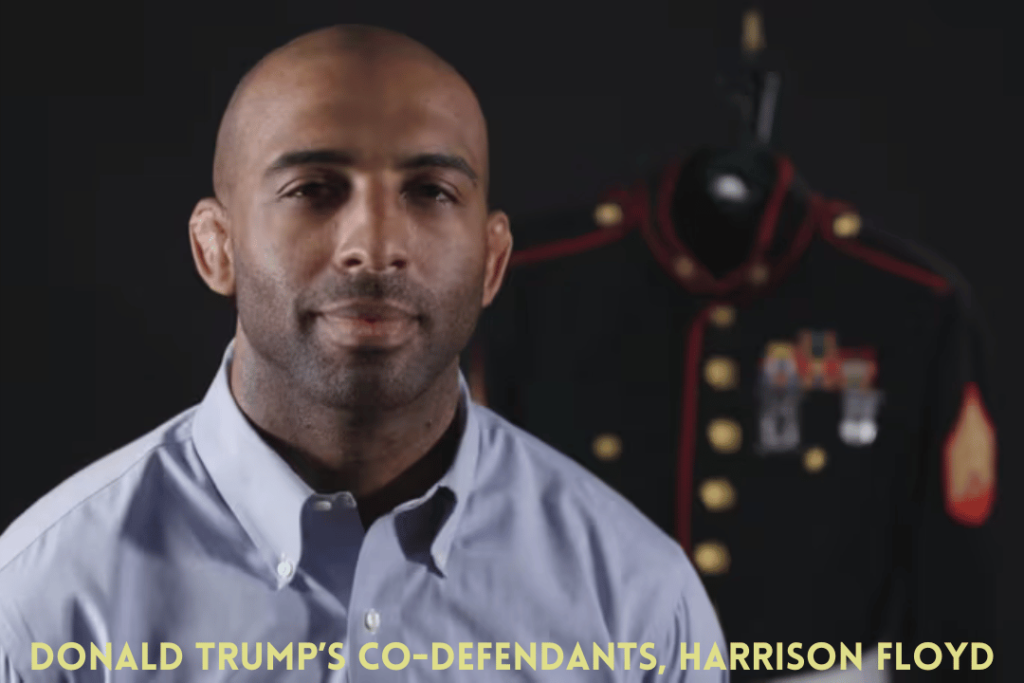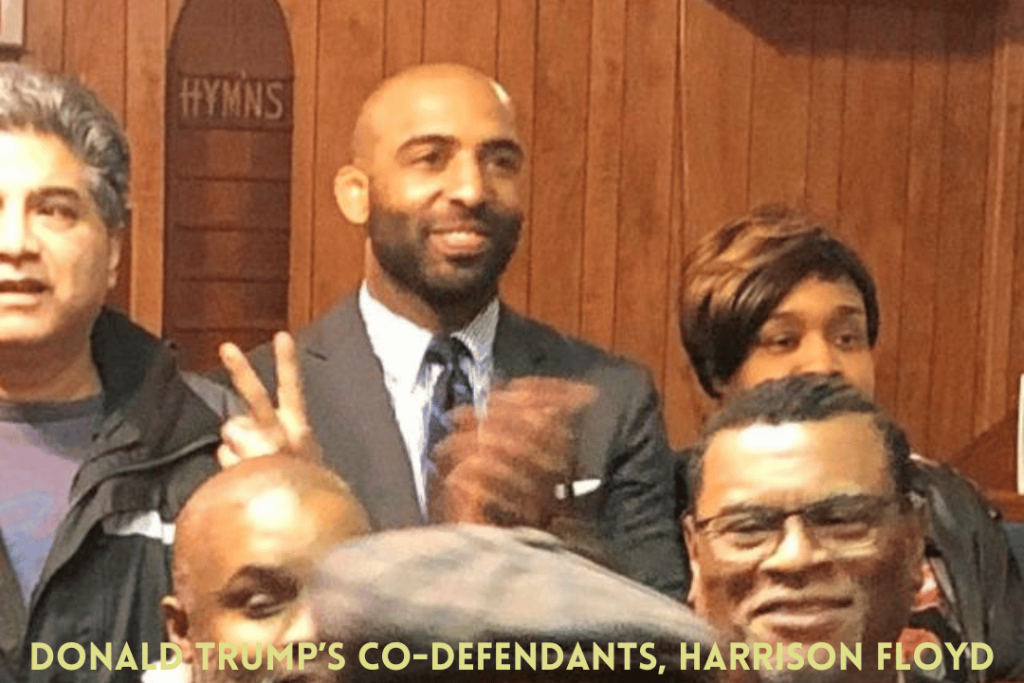In the ongoing legal saga surrounding the Fulton County election racketeering case, a recent court decision by Judge Scott McAfee addressed the conduct of one of Donald Trump’s co-defendants, Harrison Floyd. Despite acknowledging what he termed as “technical violations” of Floyd’s bond agreement, Judge McAfee refrained from incarcerating him, opting instead to modify the terms of his bond.
What is stated in Bond for Donald Trump’s co-defendants Harrison Floyd?
The revised bond now imposes a stringent prohibition on Floyd’s social media engagement. Harrison Floyd is explicitly barred from making any form of social media posts—be they public or private—pertaining to co-defendants, witnesses involved in the case, or individuals specifically named in the indictment.
Fulton County prosecutors had sought Harrison Floyd’s bond revocation, alleging that his conduct, particularly on social media platforms, constituted a deliberate attempt to intimidate co-defendants and witnesses, thus violating the terms outlined to ensure his compliance and prevent incarceration.
Fani Willis, Fulton County District Attorney, made a personal appearance in court for the first time during a pre-trial hearing, emphasizing the gravity of the situation. Willis underscored the importance of upholding the court’s order, stating that remorse after intimidating witnesses isn’t acceptable, deeming it too late for apologies.
The decision not to revoke Harrison Floyd’s bond averted what could have been the first instance of a defendant being jailed in connection with the case, signaling a vigilance by prosecutors in monitoring the actions of those involved as the case proceeds.

Harrison Floyd, who maintains a plea of not guilty to three state felonies, has a history of incarceration following his indictment earlier in the year. He spent a week in Fulton County Jail before reaching a bond agreement with prosecutors.
Melissa Barrera Exits ‘Scream VII’ Over Social Media Posts on Israel-Hamas Conflict
The charges against Floyd primarily revolve around his alleged role in an intimidation campaign targeting Atlanta election workers in late 2020, a time when Trump and his supporters made unsubstantiated allegations of voter fraud against these workers.
Additionally, Harrison Floyd faces separate charges for the alleged assault of a federal officer delivering a subpoena in Washington, DC, although he has not yet entered a plea in this case.
Floyd’s legal team vigorously contested the prosecutors’ bid for incarceration, alleging it to be retaliatory after Floyd declined a plea deal. They drew parallels to former President Trump’s public comments about the case, insinuating a perceived double standard in prosecuting Floyd while not pursuing action against Trump.

Citing President Trump’s social media posts targeting Sidney Powell, an attorney who recently pleaded guilty in the case, and Mark Meadows, his former chief of staff and co-defendant, Floyd’s attorneys argued that none of these posts amounted to threats or intimidation.
Prosecutors, however, highlighted Harrison Floyd’s recent social media activities discussing Georgia election officials expected to testify and comments made on a conservative podcast regarding Jenna Ellis, another co-defendant who pleaded guilty and agreed to cooperate.
During the court proceedings, witnesses detailed Floyd’s posts, with special attention given to courtroom decorum when describing emojis and internet-speak used in his social media content.
Despite Floyd’s attorney maintaining that the posts did not elicit any complaints from witnesses, the state witnesses testified to the potential threats and increased online activity targeting individuals named in Floyd’s posts, prompting security measures and precautions, such as relocating from homes.
Judge McAfee’s decision to modify Floyd’s bond underscores the importance of complying with court-ordered restrictions, particularly in preventing any possible intimidation of witnesses or obstruction of justice during the trial’s progression.






[…] Judge Modifies Harrison Floyd’s Bond Amid Trump-Linked Fulton County Election Case […]